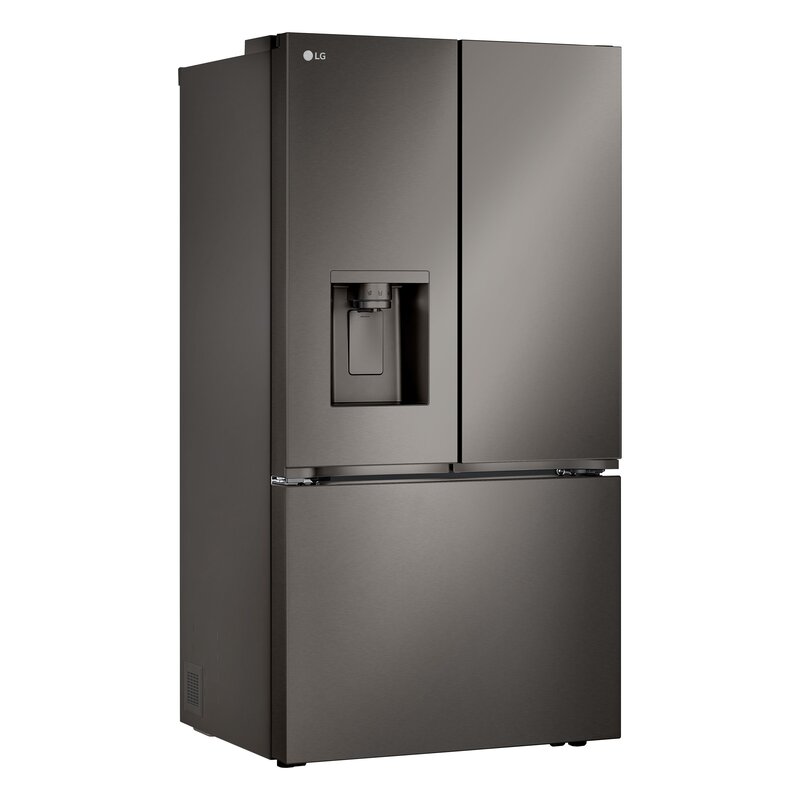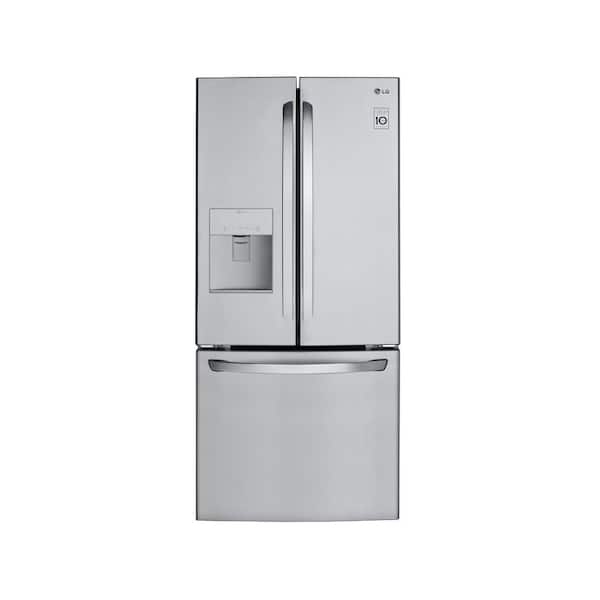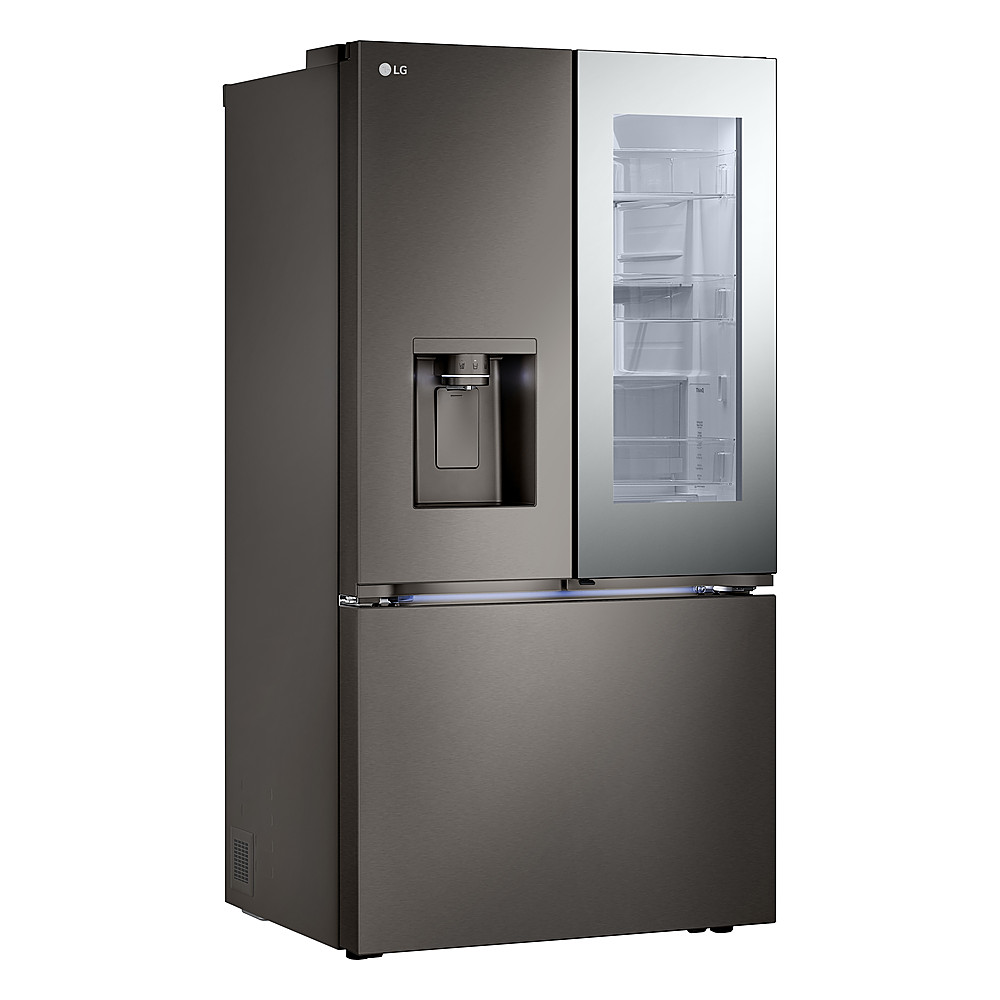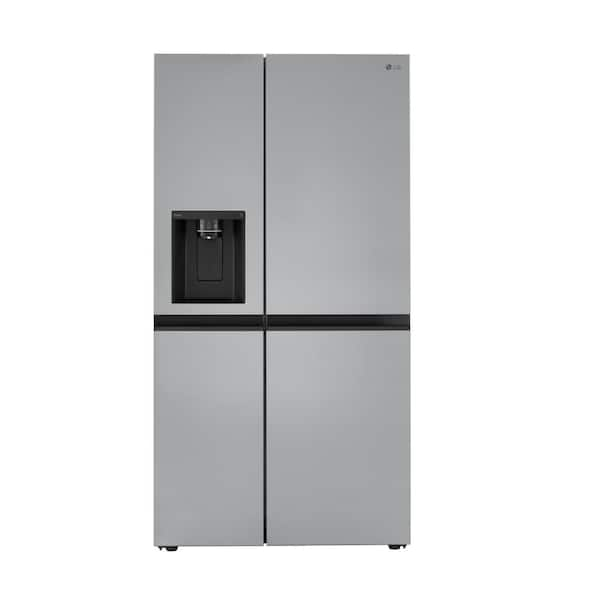Troubleshooting LG Refrigerator Cooling Problems
LG refrigerators are well-known for their efficiency and innovative features. However, like any other appliance, they can encounter cooling issues that can be frustrating. To keep your food fresh and your appliance in top condition, it’s important to know how to troubleshoot common problems of lg refrigerators.
Identifying Issues with the Linear Compressor
Linear compressors in LG refrigerators are designed for energy efficiency and quiet operation. Yet, they can face problems due to several factors. If your refrigerator is running but not cooling, it might be an issue with the compressor. You may notice a lack of the running/humming noise that signifies a working compressor. If you suspect a problem, a technician may need to inspect the compressor’s seals and functionality. Remember, opening the compressor unit yourself is not advisable; instead, seek professional help.
Dealing with Defective Condenser Motors
The condenser motor plays a critical role in your LG refrigerator’s cooling process. If it’s defective, you might hear strange sounds or your fridge may overheat. Check the condenser coils for dirt or obstruction that could affect the fan blades. Should the motor not work properly after removing debris, consult with a professional for potential replacement.
Testing for Start Relay Faults
Start relay faults can prevent your LG refrigerator’s compressor from kicking in. To test the relay, remove the fridge’s rear panel and use a multimeter to check the relay’s continuity. If there’s no continuity, the relay may need replacement. It’s a straightforward task, but if you’re unsure, it’s best to call an expert.
Checking the Evaporator Fan Motor
The evaporator fan is key in circulating cool air within your LG refrigerator. If you’re facing cooling problems, check for any ice buildup or clogs that might be hindering the fan. Clear any debris and ensure the motor runs smoothly. If the motor has issues, a repair or replacement might be on the cards. Look for professional help if the problem persists post-cleaning.
Managing LG Refrigerator Temperature Irregularities
Ensuring your LG refrigerator maintains the right temperature is essential for food safety and energy efficiency. Yet, temperature irregularities can occur. Here’s how to manage them.
Adjusting Temperature Settings and Controls
The control panel is your first stop for temperature fixes. Check the settings. They may be too high or too low for optimal preservation. Adjust them to the right level, normally between 37°F and 40°F for the fridge, and 0°F for the freezer.
Handling Temperature-Related Ice Maker Problems
Ice makers depend on accurate temperature control. If yours isn’t working, ensure the freezer isn’t too warm. Common Problems with LG refrigerators commonly show up as ice makers producing little to no ice when temperatures rise.
Addressing Freezer Defrosting Complications
In LG freezers, defrosting issues often tie back to faulty components, like a defective defrost control board or a broken defrost heater. These parts are crucial for the auto-defrost function which maintains the freezer’s temperature by melting away excess ice. If too much ice builds up, it can insulate the freezer and prevent proper cooling. If you notice excess frost, it may indicate that these components are not working correctly.
Solutions for LG Refrigerator Noise Disturbances
Having a noisy LG refrigerator can be quite bothersome. Thankfully, identifying and fixing the source of these sounds can bring back the peace and quiet you’re used to. Here are some common problems related to LG refrigerators noise and solutions to resolve them.
Fixing Problems with Fan Blades and Motors
Fan issues often cause noise in LG refrigerators. If you hear rattling or buzzing sounds, check the fan blades for obstructions. You may need to remove debris or replace damaged blades. Additionally, listen to the fan motors. A failing motor can create a whirring noise. If so, the motor might need replacing. Remember to unplug the refrigerator before attempting any repairs.
Diagnosing Compressor Noises
The compressor is the heart of your fridge’s cooling system. Noises like banging or humming can signal a problem. If your LG refrigerator’s compressor makes loud or strange noises, it may indicate it’s wearing out. Often, this requires a technician’s expertise. If your refrigerator is still under warranty, contacting LG for a compressor assessment and repair is recommended.
Resolving Issues with the Water Inlet Valve
Noises from the water inlet valve may show during ice making or water dispensing. If you hear hammering or buzzing when your fridge dispenses water, the water inlet valve may be at fault. It’s responsible for controlling water flow and can become noisy if damaged or if water pressure is too high. Inspect the valve for mineral deposits and check water pressure. If the valve is faulty or if adjustments don’t help, replacing the valve might be needed.
Resolving LG Refrigerator Water and Ice Dispenser Issues
Frequent usage of the water and ice dispenser in LG refrigerators can lead to operational challenges. If you’re facing issues, there are troubleshooting steps you can take to resolve them efficiently.
Clearing Blockages from the Water Tube
Blockages in the water tube are common and can hinder water flow. Disconnect the tube, blow through it to check for obstructions, and clear it using warm water. Regularly inspect for freezing or debris to maintain a smooth water dispenser function.
Repairing Faulty Dispensing Mechanisms
Dispenser issues might be due to worn out parts. Check the dispenser’s control board, switch, auger motor, actuator, door motor, or solenoid. Use a multimeter to test for continuity and replace any faulty parts to restore proper dispenser operations.
Maintaining Ice Maker Efficiency
To keep the ice maker working well, regular maintenance is key. Replace the filter every six months, check temperature settings in the freezer, and ensure the ice maker and bin are clean. If the ice taste is off or production is low, it could signal the need to service or replace the ice maker components. Professional assistance might be needed if at-home fixes don’t resolve the issue.
Preventing and Repairing LG Refrigerator Leaks
Water leaking from your LG refrigerator can be a sign of various issues. Here’s how to tackle and prevent these leaks.
Cleaning the Drain Line to Stop Water Leaks
A clogged drain line often causes water leaks inside your fridge. To fix this, locate the drain hole inside your fridge or freezer. Use warm water to clear away ice or debris that may block it. This simple step can stop leaks and prevent water from pooling.
Inspecting and Replacing Tank Assemblies
Leaky tank assemblies can also cause water inside your fridge to pool. Look for signs of damage or cracks on the tank. If you find any, you may need to replace the tank to prevent leaks. Ensure connections are secure, and there’s no damage to the lines.
Prioritizing Door Seal Integrity
A faulty door seal might let warm air into your fridge. This can lead to condensation and leaks. Check the rubber seals on your fridge doors for wear or looseness. If seals are damaged, replace them to maintain a tight closure. Keeping seals clean can also help prevent leaks. Wipe down the seals with a damp cloth regularly to remove dirt and residue.
Expert Tips for LG Refrigerator Maintenance and Care
Maintaining your LG refrigerator is key to its longevity and performance. Follow these expert tips to keep your appliance running smoothly and efficiently.
Regular Cleaning of Condenser Coils
Dirt and dust can make your LG refrigerator work harder, leading to issues.
- How to Clean: Turn off the fridge and unplug it. Find the coils, usually at the back or bottom. Use a coil brush or vacuum to clean them. Do this every six months.
- Benefits: Clean coils help your fridge cool more effectively and save energy.
Avoiding Door Sealing Problems
A tight seal keeps the cold in and saves energy.
- Check the Seals: Inspect door seals for food particles or damage regularly.
- Clean Regularly: Wipe seals with a damp cloth to remove dirt and ensure a good seal.
- Replace if Needed: If seals are worn out, replace them to prevent air leaks.
Ensuring Proper Appliance Leveling
A level refrigerator closes and seals properly, and runs as it should.
- How to Level: Use a level tool on top of the fridge. Adjust the legs at the bottom until it’s even.
- Check Annually: Make leveling part of your yearly maintenance checklist.
By following these tips, you can address some of the most common problems with LG refrigerators and keep your appliance in peak condition for years to come.
How to Correctly Reset Your LG Refrigerator
Sometimes, solving common problems with LG refrigerators is as simple as resetting the system. This can refresh the appliance’s main control board, resolve minor errors, and restore functionality without the need for a technician’s visit.
Steps to Reset and When It’s Necessary
To reset your LG refrigerator:
- Locate the Power Button: Look for the power button on the control panel.
- Unplug the Fridge: Disconnect the fridge from its power source for about 30 seconds.
- Reconnect Power: Plug the refrigerator back in.
- Press and Hold: Simultaneously hold the ‘Refrigerator’ and ‘Ice Plus’ buttons for 5 seconds.
- Wait for Reset: Your display panel should blink, indicating a reset.
When to reset:
- After a power outage.
- If there are error codes on the display.
- When the fridge seems unresponsive.
Signs That Indicate a Reset Is Needed
Look for these signs to decide if a reset might help:
- Error Codes: If your fridge shows an error code, try a reset first.
- Unusual Operation: When functions become irregular without explanation.
- After Repair: Reset your fridge after any major repair work.
If these steps don’t clear up your fridge’s issues, then it might be time to consult a professional. Keep an eye out for error codes and odd behaviors from your fridge, and remember that a simple reset is often the first and easiest step to troubleshoot your appliance.






